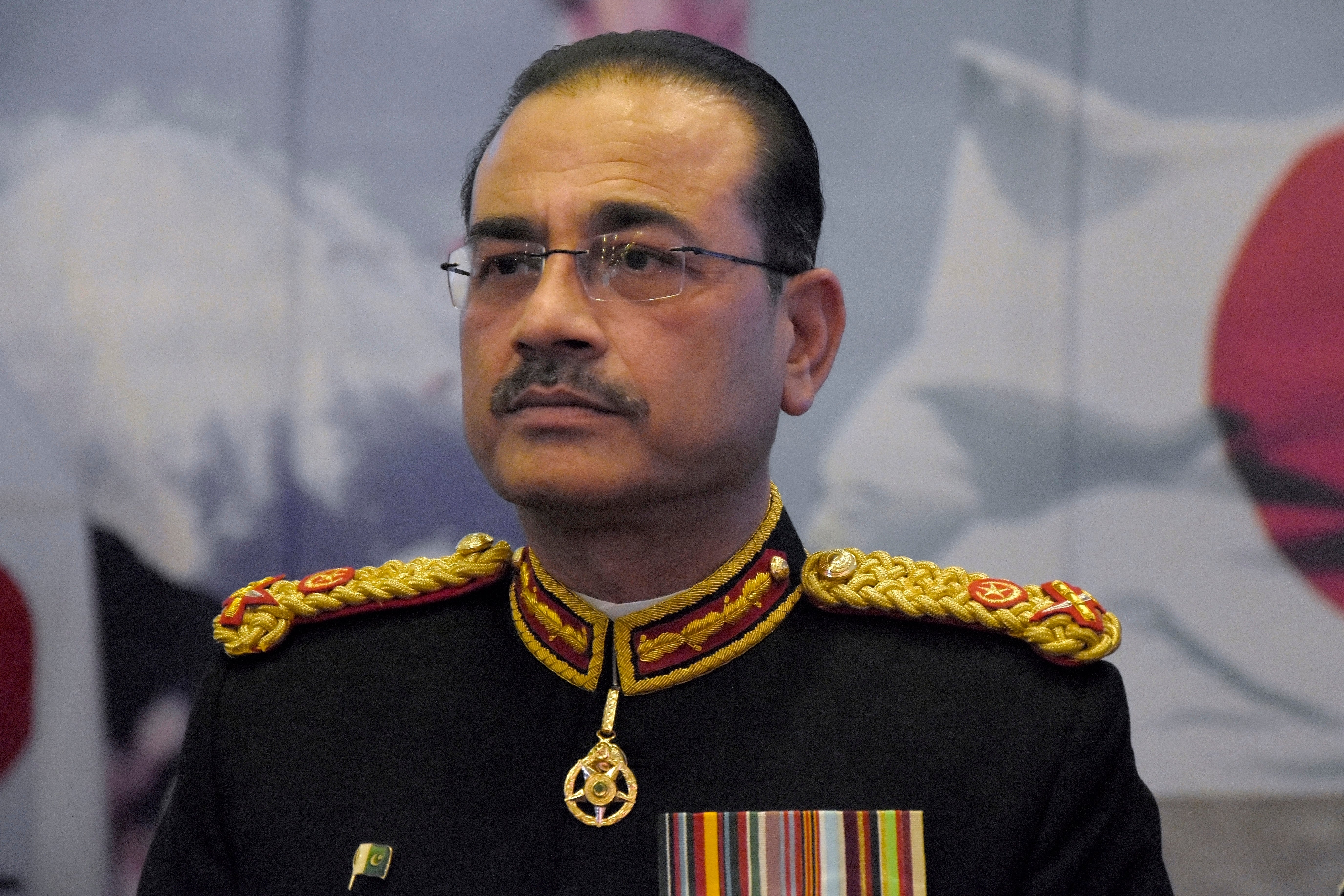Pakistan's new army chief takes charge of military
Pakistan’s new military chief has taken command of the country's armed forces

Your support helps us to tell the story
From reproductive rights to climate change to Big Tech, The Independent is on the ground when the story is developing. Whether it's investigating the financials of Elon Musk's pro-Trump PAC or producing our latest documentary, 'The A Word', which shines a light on the American women fighting for reproductive rights, we know how important it is to parse out the facts from the messaging.
At such a critical moment in US history, we need reporters on the ground. Your donation allows us to keep sending journalists to speak to both sides of the story.
The Independent is trusted by Americans across the entire political spectrum. And unlike many other quality news outlets, we choose not to lock Americans out of our reporting and analysis with paywalls. We believe quality journalism should be available to everyone, paid for by those who can afford it.
Your support makes all the difference.Pakistan’s new military chief took command of the country's armed forces on Tuesday amid a deepening political rift between the government and the popular opposition leader, as well as a renewed threat from a key militant group that has been behind scores of deadly attacks over 15 years.
The army has historically wielded huge influence in Pakistan, ruling it for half of the country's 75-year history. But it has also been fighting local and foreign militants since 2001 when Pakistan became an ally of the United States in the war on terror. The alliance angered Pakistani militants, some of whom joined the Afghan Taliban in the yearslong war that ended in 2021 with the withdrawal of the U.S. and NATO forces in Afghanistan.
One of the key challenges faced by the country's new army chief, Gen. Asim Munir, will be how to respond to the latest threat from the Pakistani Taliban, known as TTP, which has ordered its fighters to resume attacks across the country.
The Pakistani Taliban are a separate group but are allies of the Afghanistan Taliban, who seized power in Afghanistan more than a year ago as the U.S. and NATO troops were in the final stages of their pullout. The Taliban takeover in Afghanistan emboldened TTP, whose top leaders and fighters are hiding in Afghanistan.
Munir, who is a former spymaster, replaced Gen. Qamar Javed Bajwa, who has retired from the post after a six-year term. Bajwa, during his tenure, had approved a series of operations against the militants to evict them from the country's former northwestern tribal regions bordering Afghanistan.
Bajwa also opened peace talks with TTP earlier this year.
The Pakistani Taliban had agreed to an indefinite cease-fire in May after talks with Pakistan's government and military officials in Afghanistan’s capital, Kabul.
The TTP in a statement Monday ended the ceasefire, vowing new attacks.
That's raised fears of violence in Pakistan which has witnessed scores of deadly attacks, mostly claimed by the TTP, an umbrella group of several militant factions. Pakistani Taliban were behind a 2014 attack on an army-run school in the northwestern city of Peshawar that killed 147 people, mostly schoolchildren.
Tuesday's change in military command comes days after Prime Minister Shahbaz Sharif named Munir to replace Bajwa, who handed over his traditional “baton of command" to Munir at a ceremony amid tight security in the garrison city of Rawalpindi.
Munir was promoted to four-star general by Sharif last week to replace Bajwa, who retired at the height of his unpopularity. Bajwa emerged as one of the most controversial army chiefs this year when opposition leader Imran Khan accused him of ousting his government under the U.S. plot, a charge Sharif, the United States and the military have denied.
In his speech, Bajwa congratulated Munir and hoped that during his tenure the country's defense will be further strengthened. Bajwa served in the military for 44 years.
Khan, a former cricket star turned politician, was ousted in a no-confidence vote in Parliament and he wants new military leadership to end the political turmoil. The army chief is widely seen as the de facto ruler in Pakistan.
Munir's approach to the lingering political feud was unclear.
Munir has assumed the command of the military amid a deadlock between Khan and Sharif who says the next polls will be held as scheduled in 2023. The military so far has publicly said that it will not play role in politics, meaning it was up to Sharif's government and Khan to resolve any political issues.
Khan was shot in the leg Nov. 3 by a gunman when he was marching toward the capital, Islamabad, from the eastern city of Lahore in a convoy of thousands to pressure Sharif to resign and agree to the new vote. One of Khan’s supporters was killed and 13 were wounded in the attack last month and the gunman was arrested.